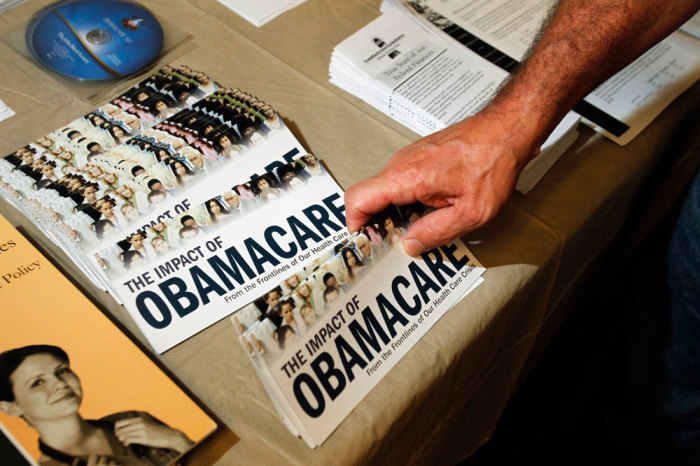Federal Judge OKs Lawsuit Brought by Small Business Owners, Individuals in 6 States That Could Cripple Obamacare

A federal judge on Tuesday gave the green light to a lawsuit challenging a major IRS Obamacare regulation that could cripple the healthcare law after denying the government's motion to dismiss it.
The plaintiffs in the lawsuit are individuals and small businesses across six states, according to a report by the Competitive Enterprise Institute, which first reported on the case and is assisting with its coordination.
The group also sought a preliminary injunction on Obamacare, but U.S. District Judge Paul Friedman denied it and opted to put the case on an expedited schedule. He said he would rule on the merits of the case on or before Feb. 15, 2014.
The lawsuit challenges an IRS regulation imposed under the umbrella of the Affordable Care Act that will subject the plaintiffs to penalties and force them to cut back employees' hours, even though they are located in states that have refused to set up their own insurance exchanges.
According to another report on the lawsuit by the Daily Mail, 36 states chose not to set up their insurance exchanges, and that decision should have frozen the government's authority to pay subsidies and other incentives to encourage citizens in those states to buy medical insurance.
The subsidies reportedly serve as a trigger for determining who must comply with the individual and employer mandates of the healthcare law. Subsidies can also only be paid through insurance policies bought "through an Exchange established by the State."
Despite the 36 states choosing not to set up insurance exchanges, the lawsuit argues that IRS went ahead anyway and essentially overstepped its authority by paying the subsidies forcing millions of individuals and employers to become liable to penalties if they don't fall in line with the law.
Government lawyers, however, have argued that "Congress made clear that an exchange established by the federal government stands in the shoes of the exchange that a state chooses not to establish."
They argue that the Treasury Department "has reasonably interpreted the Act to provide for eligibility for the premium tax credits for individuals in every state, regardless of which entity operates the exchange."
Sam Kazman, general counsel for the Competitive Enterprise Institute, argued that those actions amount to the federal government ignoring the letter of the law.
"Without those subsidies, the employer mandate isn't triggered," he noted in the Daily Mail report.
"The fiscal impact" of denying the Obamacare system millions of dollars in lost fines, "while sizable, wouldn't be large enough to bring down the house," Kazman noted, but the political one is, he argued.
"You'd have 34 'refusenik' states exempting their employers and many of their citizens from the employer mandate and portions of the individual mandate," he explained. "You'd have companies in participating states considering whether to move their operations" to states where they don't have to obey the Affordable Care Act. "And you might even have some of those states seeking to undo their choice to participate."




























